Resources
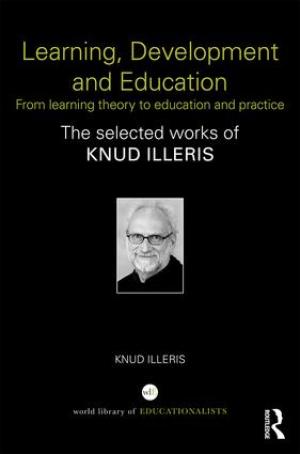
Click Here for Book Review Abstract: In the World Library of Educationalists, international experts themselves compile career-long collections of what they judge to be their finest pieces – extracts from books, key articles, salient research findings, major theoretical and practical contributions – so the world can read them in a single manageable volume. Readers will be able to follow the themes and strands and see how their work contributes to the development of the field. This volume brings together the selected works of Knud Illeris. Leaving a promising business career at age 27 to begin his higher education, Knud Illeris exemplifies the true spirit of youth and adult education that has resulted in him having published in almost twenty countries, including the UK, Germany, China, Korea and Brazil. Knud Illeris’ work revolves around the way learning takes place and in some cases does not take palce. Split into five parts; - Learning Theory - Lifelong Learning as a Psychological Process - Special Learning Issues - Various Learning Approaches to Education - Learning in Working Life Learning, Development and Education: From learning theory to education and practice is arranged thematically and examines youth and adult learning through Illeris’ model based on three dimensions of learning and competence development– emotional, cognitive and social, and four kinds of learning. In this collection of his papers, written over a period of almost five decades, and published in multiple languages, spanning from Faroese to Chinese, some of his most important works are chronicled. This compelling overview of Illeris’ contribution to educational thinking and theory charts the challenges and obstacles faced by disciplination and selection, and offers a genuine impression and understanding of an almost lifelong engagement with a wide range of topics in the field of learning – an engagement which has been the central area of Illeris’ academic life. (From the Publisher)
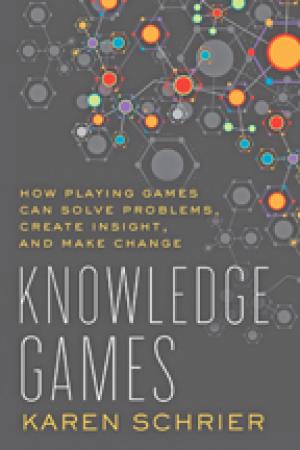
Click Here for Book Review Abstract: Imagine if new knowledge and insights came not just from research centers, think tanks, and universities but also from games, of all things. Video games have been viewed as causing social problems, but what if they actually helped solve them? This question drives Karen Schrier’s Knowledge Games, which seeks to uncover the potentials and pitfalls of using games to make discoveries, solve real-world problems, and better understand our world. For example, so-called knowledge games --such as Foldit, a protein-folding puzzle game, SchoolLife, which crowdsources bullying interventions, and Reverse the Odds, in which mobile game players analyze breast cancer data ---are already being used by researchers to gain scientific, psychological, and humanistic insights. Schrier argues that knowledge games are potentially powerful because of their ability to motivate a crowd of problem solvers within a dynamic system while also tapping into the innovative data processing and computational abilities of games. In the near future, Schrier asserts, knowledge games may be created to understand and predict voting behavior, climate concerns, historical perspectives, online harassment, susceptibility to depression, or optimal advertising strategies, among other things. In addition to investigating the intersection of games, problem solving, and crowdsourcing, Schrier examines what happens when knowledge emerges from games and game players rather than scientists, professionals, and researchers. This accessible book also critiques the limits and implications of games and considers how they may redefine what it means to produce knowledge, to play, to educate, and to be a citizen. (From the Publisher)
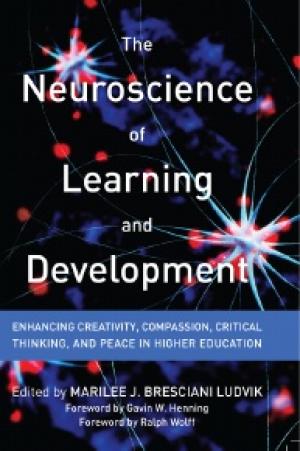
Is higher education preparing our students for a world that is increasingly complex and volatile, and in which they will have to contend with uncertainty and ambiguity? Are we addressing the concerns of employers who complain that graduates do not possess the creative, critical thinking, and communication skills needed in the workplace? This book harnesses what we have learned from innovations in teaching, from neuroscience, experiential learning, and studies on mindfulness and personal development to transform how we deliver and create new knowledge, and indeed transform our students, developing their capacities for adaptive boundary spanning. Starting from the premise that our current linear, course-based, educational practices are frequently at odds with how our neurological system facilitates learning and personal development, the authors set out an alternative model that emphasizes a holistic approach to education that integrates mindful inquiry practice with self-authorship and the regulation of emotion as the cornerstones of learning, while demonstrating how these align with the latest discoveries in neuroscience. The book closes by offering practical ideas for implementation, showing how simple refinements in classroom and out-of-classroom experiences can create foundations for students to develop key skills that will enhance adaptive problem solving, creativity, overall wellbeing, innovation, resilience, compassion, and ultimately world peace. (From the Publisher)
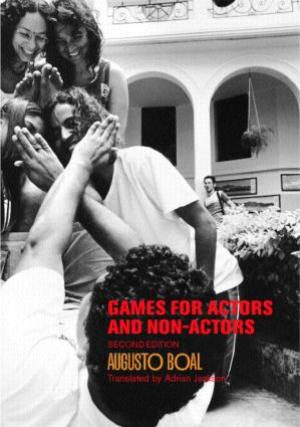
Games for Actors and Non-Actors is the classic and best selling book by the founder of Theatre of the Oppressed, Augusto Boal. It sets out the principles and practice of Boal's revolutionary Method, showing how theatre can be used to transform and liberate everyone – actors and non-actors alike! This thoroughly updated and substantially revised second edition includes: - two new essays by Boal on major recent projects in Brazil - Boal's description of his work with the Royal Shakespeare Company - a revised introduction and translator's preface - a collection of photographs taken during Boal's workshops, commissioned for this edition - new reflections on Forum Theatre. (From the Publisher)
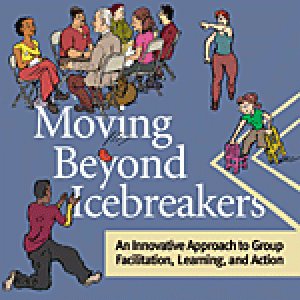
This book captures TE's approach to successful group facilitation, which works in many different environments with both youth and adult groups of all kinds. Contains more than 300 interactive exercises and explains how to use them within a meeting structure that's bound to get the results your group needs! Find out more at MovingBeyondIcebreakers.org: See excerpts from the book, see what people have said about it, and order online. TE has 10 short videos posted on YouTube that illustrate how we work interactively to engage groups of youth and adults. See exercises in action from Moving Beyond Icebreakers! - Concentric Circles - Make It Up: Paper Chase - Wordstorm - Evaluation - The Human Knot - Name Wave - Warm-up Questions - Bag Toss - Zip Zap Zup with Foot-Stamp - Wind Blows with Word (From the Publisher)
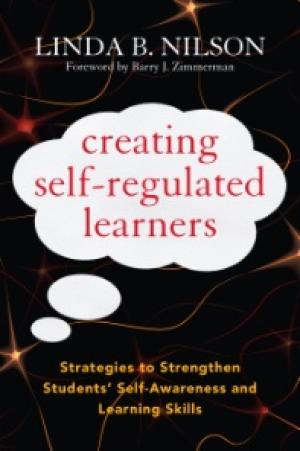
Most of our students neither know how learning works nor what they have to do to ensure it, to the detriment both of their studies and their development as lifelong learners. The point of departure for this book is the literature on self-regulated learning that tells us that deep, lasting, independent learning requires learners to bring into play a range of cognitive skills, affective attitudes, and even physical activities – about which most students are wholly unaware; and that self-regulation, which has little to do with measured intelligence, can be developed by just about anyone and is a fundamental prerequisite of academic success. Linda Nilson provides the theoretical background to student self-regulation,the evidence that it enhances achievement, and the strategies to help students develop it. She presents an array of tested activities and assignments through which students can progressively reflect on, monitor and improve their learning skills; describes how they can be integrated with different course components and on various schedules; and elucidates how to intentionally and seamlessly incorporate them into course design to effectively meet disciplinary and student development objectives. Recognizing that most faculty are unfamiliar with these strategies, she also recommends how to prepare for introducing them into the classroom and adding more as instructors become more confident using them. The book concludes with descriptions of courses from different fields to offer models and ideas for implementation. At a time of so much concern about what our students are learning in college and how well prepared they are for the challenges of tomorrow’s economy and society, self-regulated learning provides a reassuring solution, particularly as studies indicate that struggling students benefit the most from practicing it. (From the Publisher)

If teachers want to create positive change in the lives of their students, then they must first be able to create positive change in their own lives. This book describes a powerful professional development approach that merges the scholarship of critical pedagogy with the Theatre of the Oppressed. Participants “act up” in order to explore real-life scenarios and rehearse difficult conversations they are likely to have with colleagues, students, administrators, and parents. The authors have practiced the theatrical strategies presented here with pre- and in-service teachers in numerous contexts, including college courses, professional development seminars, and PreK–12 classrooms. They include step-by-step instructions and vivid photographs to help readers use these revolutionary theatre strategies in their own contexts for a truly unique learning experience. (From the Publisher)
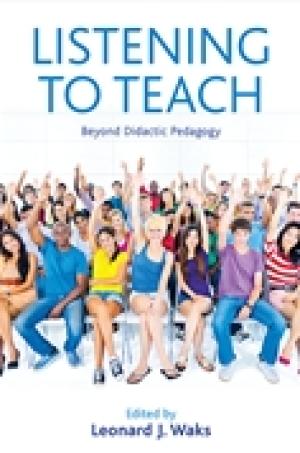
Click Here for Book Review Abstract: First book to offer a survey of pedagogical listening in conventional and alternative methodologies. What happens when teachers step back from didactic talk and begin to listen to their students? After decades of neglect, we are currently witnessing a surge of interest in this question. Listening to Teach features the leading voices in the recent discussion of listening in education. These contributors focus close attention on the key role of teachers as they move away from didactic talk and begin to devise innovative pedagogical strategies that encourage active listening by teachers and also cultivate active listening skills in learners. Twelve teaching approaches are explored, from Reggio Emilia’s project method and Paulo Freire’s pedagogy of the oppressed to experiential learning and philosophy for children. Each chapter offers a brief explanation of one of these approaches—its background, the problems it aims to resolve, the educators who have pioneered it, and its treatment of listening. The chapters conclude with ideas and suggestions drawn from these pedagogies that may be useful to classroom teachers. (From the Publisher)
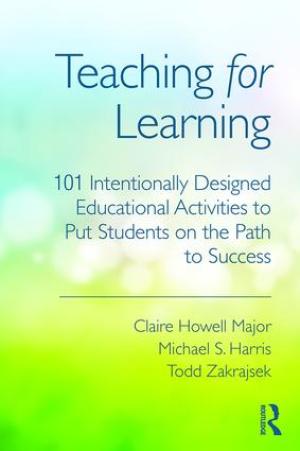
Click Here for Book Review Abstract: Despite a growing body of research on teaching methods, instructors lack a comprehensive resource that highlights and synthesizes proven approaches. Teaching for Learning fills that gap. Each of the one hundred and one entries: - describes an approach and lists its essential features and elements - demonstrates how that approach has been used in education, including specific examples from different disciplines - reviews findings from the research literature - describes techniques to improve effectiveness. Teaching for Learning provides instructors with a resource grounded in the academic knowledge base, written in an easily accessible, engaging, and practical style. (From the Publisher)
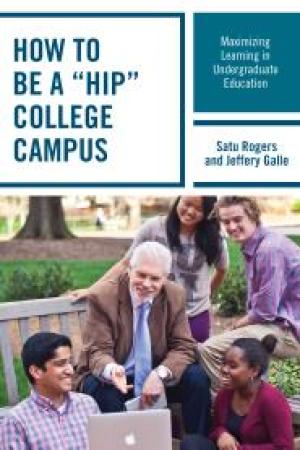
Click Here for Book Review Abstract: High Impact Practices (HIP). Through the voices of dozens of seasoned college faculty and junior and senior students, this book shares insights and practical examples on how a college campus can be “HIP”—utilizing high-impact educational practices widely and effectively. The book’s strength is numerous hands-on examples about HIPs’ implementation in and out of the classroom. HIPs have been proven to improve student learning, yet practical examples of their implementation are still few. This book fills that gap. Covering seven (sets of) HIPs, we ask such questions as: What do creative assignments based on active learning look like? How does one teach the “whole student?” How does and should student diversity affect teaching? The book is most beneficial to current and future instructors of college courses, especially those wanting to use more active learning pedagogies. It will also benefit university administrators and staff by identifying campus priorities, culture, and structure that support the effective implementation of HIPs. It makes the case for a campus-wide adoption of high-impact practices, across disciplines and in both academic and co-curricular life. (From the Publisher)